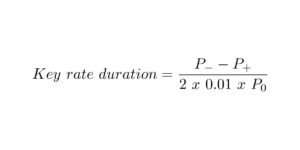What does knowledge engineering mean?
Knowledge engineering is a branch of artificial intelligence (AI) that develops rules to apply to data to simulate a human expert’s thought process. It examines the structure of a task or a decision to establish how a conclusion is reached.
Then, a library of problem-solving methods and the supplementary knowledge used for each can be created and presented to the system as problems to be diagnosed. The resulting software could then aid in the diagnosis, troubleshooting, and resolution of problems, either on its own or as a complement to a human agent.
Knowledge Engineering, and Understanding
The objective of knowledge engineering was to transmit the problem-solving expertise of humans to a computer program capable of analyzing the same data and reaching the same conclusion. This approach is referred to as the transfer process, and it dominated early knowledge engineering endeavors.
However, it fell out of favor as scientists and programmers realized that humans’ decision-making knowledge is not always explicit. Humans draw from parallel sources of knowledge that are not always logically connected to the task at hand, despite many decisions that can be traced back to prior experience with what worked.
Some of what CEOs and prominent investors call gut feelings or intuitive leaps are best described as analogous reasoning and nonlinear thinking. These modes of thought do not lend themselves to direct, step-by-step decision trees and may necessitate the incorporation of data sources that appear to cost more to acquire and process than they are worth.
In favor of a modeling procedure, the transfer process has been abandoned. Instead of endeavoring to follow the step-by-step process of a decision, knowledge engineering focuses on developing a system that achieves the same results as the expert without following the same path or utilizing the same information sources.
This eliminates some problems associated with tracing the knowledge used for nonlinear thinking, as the individuals utilizing it are frequently unaware of the information they are drawing from. The model is valid as long as the results are comparable. It can be refined once a model consistently approaches the human expert’s performance. Flawed conclusions can be traced back and debugged, and processes that produce equivalent or better conclusions can be promoted.
Beyond Human Expertise in Knowledge Engineering
Decision support software already incorporates knowledge engineering. Specialized knowledge engineers are employed in various disciplines that advance human-like capabilities, such as the capacity of machines to recognize a face or decode the meaning of a person’s speech.
As the model’s complexity increases, it is possible that the knowledge engineers will not completely comprehend how conclusions are drawn. Eventually, the discipline of knowledge engineering will shift from developing systems that solve problems as well as humans to ones that perform quantitatively better than humans.
Combining these knowledge engineering models with other capabilities such as natural language processing (NLP) and facial recognition, artificial intelligence could become the world’s most excellent server, financial advisor, or travel agent.
Conclusion
- Knowledge engineering is a field of artificial intelligence (AI) that creates rules that can be used on data to make computers think like human experts on a particular subject.
- In its early stages, knowledge engineering was all about moving experience from someone who could solve problems to a computer program that could use the same data and come to the same conclusions.
- Transfer processing wasn’t perfect because it didn’t accurately show how people make choices. It didn’t look at gut feelings and analogous reasoning, which are types of nonlinear thought that aren’t always rational.
- These days, knowledge engineering uses a modeling method to build a system that can reach the same conclusions as a human expert, even if it doesn’t use the same information sources or follow the same path.
- The end goal of knowledge engineering is to give people the tools they need to make software that makes choices, like financial planners.
- It is already possible for software to help people make decisions using knowledge computing, and one day, it will likely be possible for computers to make better choices than humans.












































